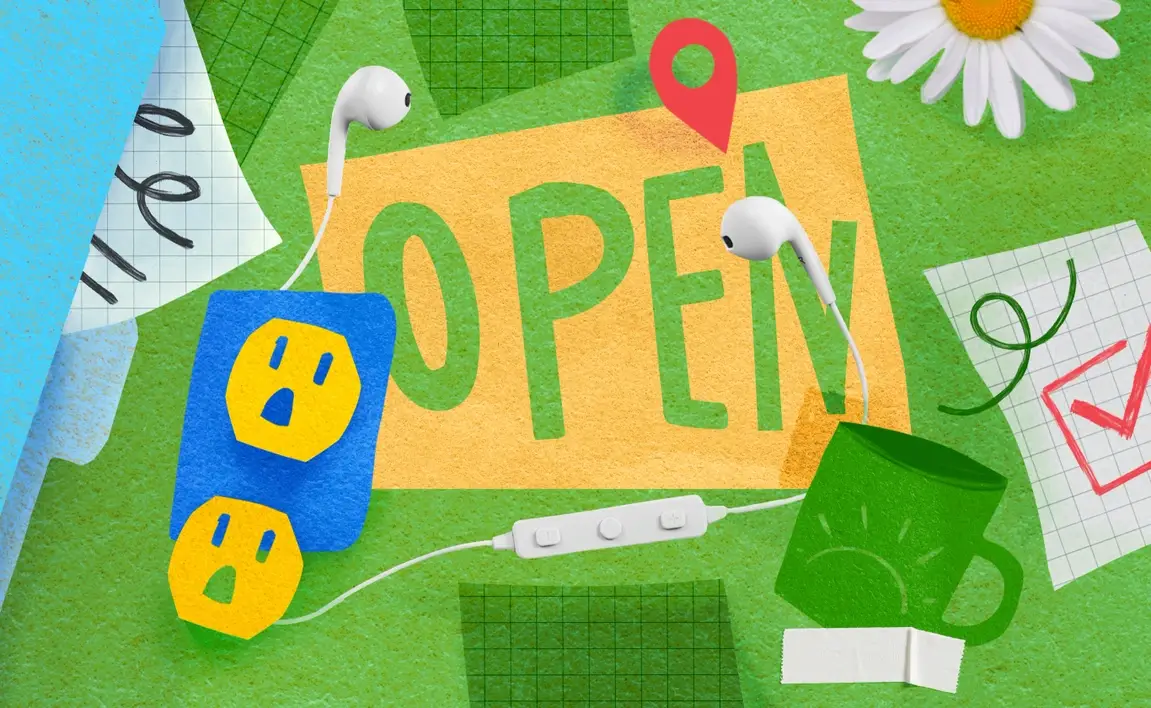How to Make Your Coworking Space Work for You

Do you work from home? Share your tips for staying on track in the comments!
Is your workplace part of the 63% of employers in the U.S. who allow employees to a flexible work environment? Then you might be looking for a coworking space that works for you.
While working remotely can have many benefits, it is essential to have a designated work space to help you stay on track and committed to your goals. Often, working in a relaxing setting (say, from your bedroom) can hinder your productivity. This is why many people prefer to work from a coffee shop instead of from their actual home.
If you're wondering how to make a coworking space work for you, here is a helpful guide to set you up for success.
Before you go to a coworking space
Make a to-do list
A successful working experience begins with preparation. Before you even go to your desired coworking space to try to get some work done, make a list of things you are hoping to accomplish. Setting expectations in advance makes it easier to focus on your work once you get to the coffee shop and allows you to dive right in.
Bring the essentials
Preparing before you go also means you should bring everything you could possibly need to access, including your laptop, a charger, and perhaps a pen and paper. It might also be worth investing in helpful supplies to ensure a seamless experience.
Logistical Considerations
Wifi
Although people are increasingly turning to public coworking spaces as a standard place to get work done, not all coffee shops cater to this demographic. Make sure that if you will need wifi, the place you plan to go to has accessible wifi or that you have a backup plan, such as a personal mobile hotspot.
Shop Hours
Know the location’s hours of operation. Because most coffee shops open early, they also tend to close earlier in the day. Unless you want to start your day early, be prepared to limit the amount of time you spend at the coffee shop and choose which projects you want to tackle during the allotted time.
Outlets
Many coffee shops, especially those that provide an environment for people to work, have outlets available for use. However, it is not a guarantee that you will always have access to one. In order to avoid an inconvenience, like your laptop or phone running out of battery, plan to charge your devices before heading out of the house. Having a backup plan, like a power bank or USB to charge your phone is also a good idea.
Note that some places don’t have outlets in their establishment in order to deter people from staying too long. If you notice this situation, it is safe to assume that this place will not allow you to work there. However, you can certainly ask if you are unsure about their rules or if you notice others who seem to be doing work in the space.
Avoiding distractions
Headphones
A coworking space has the potential to provide a lot of distractions. In order to minimize outside interference and maximize your work efficiency, consider using headphones. Because music itself can also be distracting for some, here are some specific working from home playlists to help keep you focused on your work.
Restricting access to social media
Leaving your phone at home or turning it off while you work is easier said than done. And there can be valid reasons to have access to it, such as if you need to communicate with clients or your supervisor. An effective way to make sure your phone provides less distractions while you’re working, though, is to download a social media blocker app.
Managing expectations
Consider visiting several coffee shops and public work spaces before settling on one that might become your new go-to spot. Finding the perfect coworking space can be the key to successful working. In fact, some people find that they are more creative in a coffee shop. Once you find a shared space that fits your needs, have fun with your new space, and don’t forget to follow these etiquette rules.
Mateo Sánchez Morales is a bilingual writer and community organizer. With a history of immigration advocacy within nonprofits, they use their own identities and experiences to guide people from nontraditional backgrounds in the academic and professional realms.






